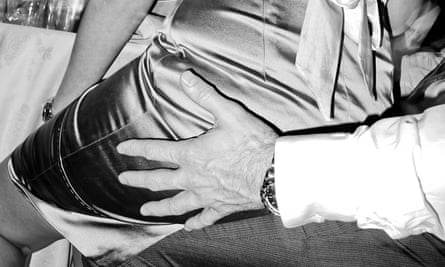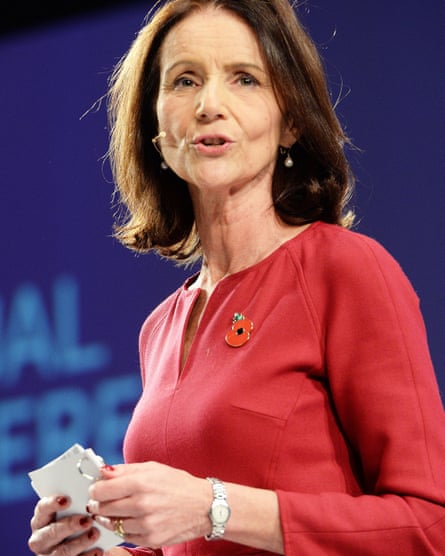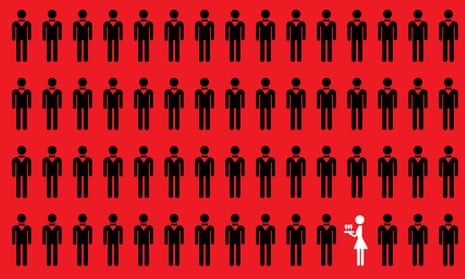How much more shock do we have the energy to articulate? How many more times do we need to become enraged at the status quo before something changes? The Financial Times’ scoop on the behaviour of senior city figures at the Presidents Club gala charity dinner has unleashed new fury about the institutionalised acceptance of harassment of women. But what is particularly depressing about this exposé is that it simply captures in slightly sharper focus a reality with which we should all be very familiar.
A brilliant piece of undercover reporting revealed extraordinary details of how senior City executives behave behind closed doors. We heard that young women hired for the evening (on the basis that they were “tall, thin and pretty”) were told by the recruiter to expect “annoying” behaviour at the male-only event. They were given wine before the evening began, apparently to give them dutch courage. The women duly reported how men repeatedly put hands up their skirts and pulled them on to their laps; one guest decided to expose his penis to a hostess.
The event was unusually grim but, with a business culture that remains stubbornly male-dominated, should we be surprised? We know that many male City employees still go to lapdancing clubs for a fun night out. We know City organisations have struggled in their vaunted attempts to get more women on boards. While companies are bravely talking about their efforts to redress the gender pay gap (large employers will be compelled to report details of how they pay their male and female staff in April), we know that women are, on average, much worse paid than men throughout the City. Broadly, power remains in men’s hands.
The response to this latest scandal has taken a familiar turn, dividing along gender lines. While senior women have condemned it, many of the Financial Times’ (male) readers have expressed unhappy bemusement at finding this article on the front page. Carolyn Fairbairn, director general of the CBI, says: “If even half of what’s been written about this event is true, it is deplorable and confirms how far we have still to go to stamp out sexual harassment. We can – and must – do better than this.”
But in the reader comments section beneath the FT piece, many couldn’t understand what all the fuss was about. “I’m surprised to see the FT reporting this sort of thing,” one person wrote. Another commented: “As long as all parties were properly informed, I see no problem.” One concluded: “I’m amazed by the puritanical tone of this piece. What a boring, self-righteous place Britain is becoming.”

There was no tedious self-righteousness on the night of the gala event. The charity auction invited bids for a night out at the Windmill Club (a lapdancing venue in Soho) and a course of plastic surgery, offered as an opportunity to “Add spice to your wife”. One guest asked a woman working there if she was a prostitute. Another guest told a female “hostess” that she looked too sober, gave her some alcohol, and told her: “I want you to down that glass, rip off your knickers and dance on that table.” Women working that night told the Financial Times that they found the experience frightening.
For Fairbairn, this event just stands at the extreme end of a spectrum of male-friendly business socialising, a culture that explicitly or implicitly excludes women, and that has for decades smoothed the path of male advancement. The key lesson is not that events such as this one should not be happening, but that a more fundamental change needs to be made to the nature of business networking to allow women to participate.
“The fact is that many more men go to black-tie dinners than women, even proportional to the leadership teams in business, because of the choices that women make and the priorities that they have and the juggling that they are doing around family life,” says Fairbairn. This applies to corporate hosting of weekend sports events, as well as evening events of any variety.
“We need to find ways of making the social side of business much more inclusive,” she adds. “This is just an extreme example, but there is a real question here about why women are choosing not to take leadership roles, why, when they get to a position of seniority, they may choose to take a step back. I think that has a lot to do with a sense of belonging and whether it is a culture they want to be part of. There is a lot of reflection to be done.” She has been pushing the CBI to hold more of its events at lunchtime or in the early evening, to make them compatible with family life. “We get far more women coming along.”
Sophie Walker, leader of the Women’s Equality party, says the event needs to be seen in the context of recent sexual harassment claims at Westminster and the scandals emerging around abuse in international sport and Hollywood. “The shock that has been expressed at this event is revulsion at something we walk across the top of every day,” she says. “It’s not just the City, it’s everywhere. The scene described in the FT is just the rotten underpinning of it all. And when we raise our voices to protest, we are told we are being shrill.”
Why should we be surprised at the gala dinner “hostesses” being required to wear “black underwear and black sexy shoes”, when female receptionists at City front desks are still required to wear heels and makeup, and when Richard Branson continues to think no press conference is complete without him picking up an air hostess and turning her upside down? These attitudes are still so entrenched that it’s hard to maintain consistent outrage. The charity event at the Dorchester has been going on for more than 30 years and snippets about what happens there occasionally emerge – in 2010, at the height of the recession, it was, according to a report in the Independent, a “majestic” event sponsored by HSBC, where “the boys tucked into the girls”. You cast a jaundiced eye at reports like this, and then try to forget how dismal the City remains.

The conviction that men should be allowed to be men stretches far beyond the City. It is worth remembering that many senior establishment men cling firmly to their right to spend time in men-only environments outside of the world of finance. Anyone shocked by the idea of 360 men from business, politics and finance gathering at the all-male Presidents Club annual dinner should note that men-only clubs continue to flourish throughout London. Mostly, the atmosphere is tamer, and has none of the sexual harassment present at the Presidents Club, but these remain establishments where powerful men can spend time together without women.
Environment secretary Michael Gove and former attorney general Dominic Grieve belong to the private members, men-only Garrick Club in London, as do actors Hugh Bonneville, Damian Lewis and Stephen Fry, along with broadcasters John Simpson, Jeremy Paxman and Melvyn Bragg and a handful of supreme court judges. Baroness Hale, president of the supreme court, has expressed her despair at judges’ membership of men-only institutions, but to no effect. “I regard it as quite shocking that so many of my colleagues belong to the Garrick Club, but they don’t see what all the fuss is about,” she has said.
If asked, Garrick members protest that the club is not a networking environment and that discussing work inside the building is frowned upon. But it’s a nonsense to pretend that important invisible connections are not forged in these clubs.

The Travellers Club in central London, which has historically been a crucial meeting place for diplomats, continues to refuse female membership. In 2012, members expressed embarrassment that female ambassadors from around the world were unable to join, and issued a proposal to allow “lady heads of some diplomatic missions in London to be accorded honorary membership for the duration of their tenure”. The motion was rejected. A leaked consultation on the possibility of female membership in 2014 revealed male concerns that the arrival of women would jeopardise the club’s reputation as a place where men can enjoy “male banter, without having to bother with the etiquette that one inevitably must adhere to in female company (whether it be offering her drinks, waiting for her to eat, or standing when she arrives or leaves)”. Another member said his experience of mixed clubs where “one does unfortunately encounter lady members, is that their presence leads to very different and far less enjoyable themes of conversation”.
Other male-only clubs are still thriving, such as White’s (where David Cameron was a member, until he decided it would be wise to resign), and Brooks’s, where senior City figures are often members. These clubs exist, hidden in plain sight.
Another, very different exposé of profound inequality is unfolding on the government’s gender pay-gap equality website, where the precise details of how all companies with more than 250 employees are paying their staff are gradually being logged. So far, only 655 out of about 9,000 companies have provided details (with most holding back, presumably concerned about potential reputational damage). We do know already, for example, that women who work for Virgin Money are paid on average 32.5% less an hour than men, and that, while 72.6% of the lowest-paid workers in this company are women, they make up just 35% of the best-paid workers; women’s bonus pay at Virgin Money is on average 45.3% lower than men’s. At easyJet, women’s average hourly rate is 51.7% lower than men’s, 89.3% of the best-paid employees are men (while 68.9% of the worst-paid members of staff are women), and female bonus pay is 43.8% lower.
Robustly welcoming the initiative, Accenture UK (where female bonus pay is 52% lower than males; and where 72% of the best-paid employees are men) declares that it has an “unwavering commitment to gender equality”. With such huge disparities between how men and women are paid, and so few women in top-paid roles, it’s easy to understand how events such as the Presidents Club gala are tolerated.
